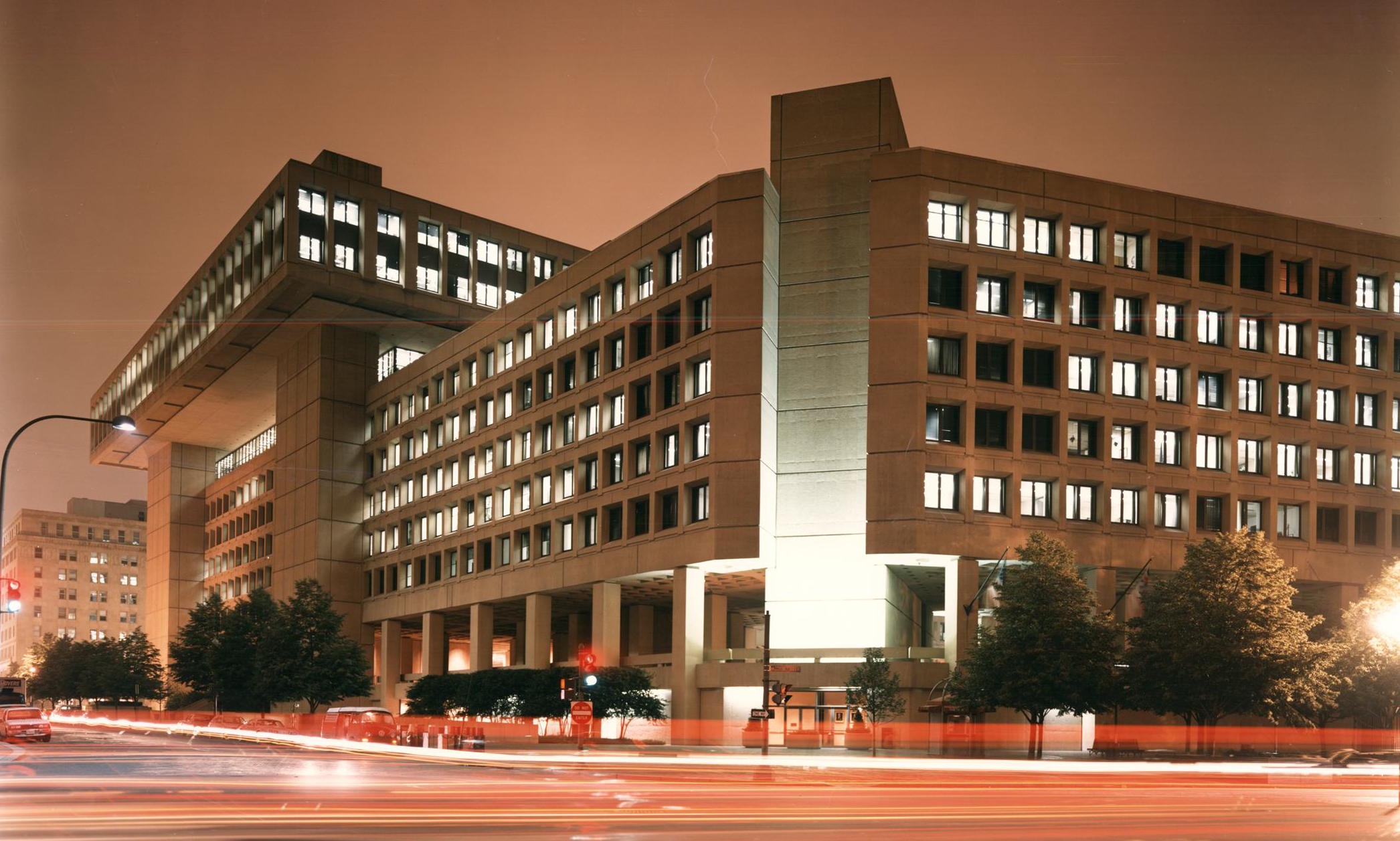The writer, a columnist for ticklethewire.com, was an FBI agent for 31 years. He retired as resident agent in charge of the Ann Arbor office in 2006. He has a law degree from the University of Nebraska College of Law.
By Greg Stejskal
When J. Edgar Hoover died in 1972, he had been director of the FBI for almost 50 years. He had built the FBI into the preeminent investigative law enforcement agency in the world. He had also amassed tremendous power that he hadn’t always used in a Constitutional or lawful manner. This was sometimes done at the behest of the presidents he served.
As these transgressions came to light, it was decided that future directors of the FBI would serve for a term of 10 years. The director would be appointed by the president with the “advice and consent” of the Senate and serve at the pleasure of the president.
The 10-year-term would keep the director from amassing the power Hoover had. It would also transcend the two-term tenure of the president, and somewhat insulate the director from political pressure. The director would continue to serve at the pleasure of the president and could be terminated without having to show cause. So, what it didn’t do was protect a director from the desire of a president wanting to use the FBI for political revenge or to forestall investigations that might be harmful to a president or his administration.
I fear Kashyap “Kash” Patel, Donald Trump’s pick for FBI director, would abuse the Constitution far beyond anything Hoover ever did and compromise the integrity of the bureau. It would be a disaster.
But before I get into that more, let’s get into Trump’s first term in office and how he tried to compromise the bureau.
Russia Investigation
Leading up to the 2016 election, the FBI had begun an investigation of Russian efforts to influence the election in favor of Trump. There was also some indication that there was communication between people in the Trump campaign and the Russians. The investigation remained secret and was disclosed after the election.
After Trump became president, he indicated to his then Attorney General, Jeff Sessions, FBI Director James Comey and others that there was no connection between the Russians and his campaign. And there hadn’t been any Russian interference to influence the election in his favor. Consequently, Trump didn’t think the investigation should be pursued further.
In the early months of the Trump presidency, Comey attended a private dinner with Trump. Trump asked Comey if he would pledge his loyalty to him. Comey was non-committal but assured Trump he would always be honest with him. This was not the response Trump was looking for, and would not bode well for Comey’s future as FBI Director.
In May of 2017, Trump fired Comey. Initially it wasn’t clear why, but during an interview with NBC’s Lester Holt, Trump said that he fired Comey because of the FBI’s continued pursuit of the Russian investigation. Trump also told Holt there was nothing to the claims of Russian interference.
The firing of Comey precipitated the appointment by AG Sessions of Robert Mueller as Special Counsel to continue the Russian election interference investigation. The Mueller investigation ultimately resulted in the indictment or guilty pleas of 34 individuals, six of whom were Trump advisors, and five of them pleaded guilty. It also established proof of significant Russian efforts to influence the election in favor of Trump.
While the Mueller investigation was ongoing, the House Committee on Intelligence conducted a parallel investigation focusing on the FBI’s opening and pursuit of the Russian investigation.
The Chairman of the committee, Devin Nunes, had directed committee staff to prepare a memorandum, dubbed the “Nunes’ memorandum.”
This memorandum alleged that the FBI “may have relied on politically motivated or questionable sources.” It went on to argue without evidence that a group of politically biased FBI employees abused the Foreign Intelligence Surveillance Act (FISA) warrant process for the purpose of undermining the Trump presidency although no such bias in decision making was ever found.
And the opening of the case was found to be justified as evidenced by the results of the Mueller investigation. Still, then President Trump embraced the Nunes’ memorandum as proving the Russian investigation was a hoax and a witch hunt. The principal author of the memorandum was Kashyap (Kash) Patel.
Wray Confirmed
In August 2017, Trump’s nominee for director of the FBI, Christopher Wray, was confirmed by the Senate on a 92-5 vote. During the Senate confirmation hearing, Wray testified he was never asked to swear loyalty to Trump, nor would he if he were asked.
During Director Wray’s ongoing tenure, not only was Special Council Mueller’s investigation completed, but Special Council Jack Smith was appointed and conducted two investigations: the January 6th and the Mar-a-Lago purloined documents cases.
Both resulted in detailed indictments, so-called “speaking indictments,” of Trump. These investigations were primarily conducted by the FBI and were in addition to the investigation and prosecution of over 1,000 individuals who were involved in the January 6th insurrection at the Capitol. In ordinary times such investigative achievements would be commended, but all this has drawn the ire of President-elect Trump.
Last week Trump announced that he picked “Kashyap ‘Kash’ Patel to serve as the next Director of the Federal Bureau of investigation.” Trump goes on to say, “He played a pivotal role in uncovering the Russia, Russia, Russia Hoax, standing as an advocate for truth, accountability, and the Constitution.” This apparently is in reference to Patel’s writing of the Nunes’ memorandum. (Trump presumably intends to fire Director Wray before actually nominating Patel which he can’t do until he is president. Patel’s appointment does entail Senate confirmation.)
Over His “Dead Body”
William Barr, Trump’s attorney general at the end of his first term, wrote in his memoir, that during his time as Trump’s AG, he opposed Trump’s proposed appointment of Patel as the FBI’s deputy director. Barr said he told White House Chief of Staff Mark Meadows that the appointment of Patel would occur over his “dead body.” Patel, Barr wrote, had “virtually no experience that would qualify him to serve at the highest level of the world’s preeminent law enforcement agency” and that even considering him for the No. 2 job showed a “shocking detachment from reality.”
Patel has been described as a “sycophantic, conspiracy theorist and an election denier” – not exactly a person who bases his decisions on facts and evidence. He has boasted that as director he would “shut down the FBI Hoover building on day one and turn it into a museum of the deep state.”
He also said he intends to use the FBI to “go out and find the conspirators not just in government, but in the media” who have lied and tried to rig elections against Trump. Patel has written a book, Government Gangsters, wherein he writes about going after people in the government and media who defied or investigated and prosecuted Trump. He appended an enemies list to the book listing 60 people he would target for retribution. He said the list was not complete, only a start.
As a retired agent of the FBI, I find it particularly galling that in Trump’s post announcing Patel as the next director of the FBI he says, “Kash will work under our great Attorney General, Pam Bondi, to bring back Fidelity, Bravery and Integrity to the FBI.”
The FBI motto is, “Fidelity, Bravery and Integrity.” In my estimation those qualities were present during my career in the FBI and have continued to be present during the tenure of Director Wray. Based on recent history, I question whether Trump or Patel understand what those words mean. I hope the Senate does.








